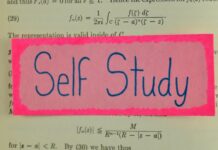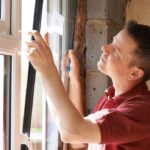
Table of Contents
Maker education is one of the top trends in education today, but it has roots as far back as the 1960s. Education pioneers such as Jean Piaget, Seymour Papert, John Dewey, and Freidrich Froebel, as well as movements such as the Reggio Emilia philosophy, have all contributed to this modern method of encouraging students to apply their developing skills to a real-life project. While maker education is very popular, the question is will it prepare students for success in higher education and satisfying careers?
An Educational Method That Focuses on the Future
Very few things are certain about the future, and this challenges educators to prepare their students for an uncertain future. This naturally leads to the importance of skills such as collaboration, problem-solving, innovation, and, somewhat surprisingly, failure. (The ability to fail without giving up is vital to further success in education and beyond the school walls.) One of the foundational goals of maker education is engaging students in projects that put these and burgeoning hard skills to work in a variety of situations. This, hopefully, provides learners with the ability to adjust to previously unencountered circumstances.
Creating Provides the Framework
As maker education in preschool and elementary schools encourages children to explore, create, and innovate, it’s a natural consequence that students will seek further learning. As the challenges increase throughout secondary school and higher education, knowledgeable students should have, through their inquiry-, maker-, project-based experiences developed the abilities necessary for coping with, if not enjoying, the demands of university and graduate work.
Maker Education Trains Students for Jobs
Seymour Papert said, when referring to education, that society needs people who know how to act when faced with unfamiliar situations. The maker movement (with roots in constructionism and constructivist theory) aims to achieve this goal. At each stage of schooling, students are given access to a variety of tools and materials and given a project to complete. As the students move through a variety of tools, skills, and projects, they become adept at applying existing skills to new situations. This is how the maker methodology prepares students for the unknown.
Project-Based Learning Prepares Children for Satisfying Adulthoods
As with many modern public education theories, some educators use the maker philosophy to focus on preparing students for success in jobs, without giving much thought to lifelong satisfaction. However, finding personal satisfaction could be an inherent result of the method. As students engage in active exploration of the problems and challenges in front of them, they learn how to fail, try again, fail again, and try again. This development of resilience prepares children to become adults who can adapt to many situations and continue finding means of survival and success.
Will today’s use of maker education prepare students for an uncertain future with a variety of jobs and challenges that haven’t yet been discovered? Based on a full history of success, a groundwork laid by pioneering educators and built upon by today’s education leaders, the maker method has been firmly established with a high probability of success.
















